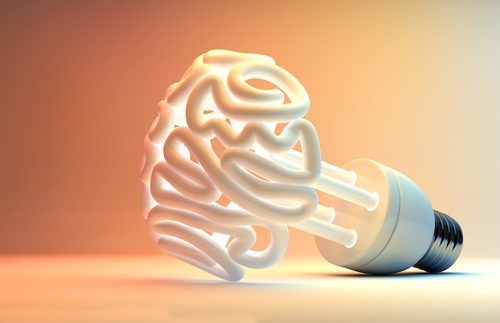
About Neuroplasticity
The term neuroplasticity refers to the brain’s ability to create and reorganize synaptic connections, especially in response to learning, experience, or injury. It was once believed that the brain’s structure became fixed once a person reaches adulthood, but we now know this is false.
The human brain is the most adaptable in childhood, but it continually evolves over the couperson’s lifetime. For example, synapses can strengthen or weaken over time and the brain activity associated with a given function can be transferred to a different location. This is why people who lose their sight or hearing as adults find that their remaining senses start to strengthen to help compensate for the loss.
Neuroplasticity has applications in everything from treating learning disabilities to helping stroke survivors regain their independence. It’s also why people become proficient over time as they practice skills like learning a new language, playing a musical instrument, or participating in sports.
Neuroplasticity comes from the words “neuro” (brain/nerve/neuron) and “plasticity” (moldability). It is sometimes referred to as brain plasticity, neuroplasticity, or neural plasticity. Encyclopedia Britannica explains neuroplasticity in greater detail.
How Neuroplasticity Relates to Addiction and Recovery
Neuroplasticity can be either maladaptive or adaptive. Both addiction and recovery can be thought of as neuroplastic events. This means that while it’s true that neuroplasticity plays a role in the development of addiction, it also holds the key to recovery.
When someone develops an addiction, the chemicals in the substance and the feeling of intoxication it creates have trained the brain to seek more of the abused substance no matter what the cost. With continued substance abuse, the pleasure centers of the brain become so hijacked that activities and relationships the person once enjoyed no longer bring any happiness.
In recovery, addiction treatment focuses on replacing the destructive habit of drug or alcohol abuse with positive habits such as exercising and enjoying stress-relieving hobbies. When a person in recovery develops a new habit, the brain creates a path in itself to support that habit. The pathway becomes stronger as the habit is continually practiced—much like how a bodybuilder’s muscles get stronger when he lifts weights over and over. The pathways that are no longer being used, like the ones that support drug and alcohol use, weaken over time.
Cognitive behavioral therapy (CBT) is a widely used treatment approach that takes advantage of neuroplasticity to help heal the damage caused by substance abuse and promote a lasting recovery. In CBT, participants use functional analysis and skills training to learn about the relationship between their thoughts, feelings, and actions. It’s a structured, goal-oriented process that focuses on solving immediate concerns and encouraging individuals to take a proactive approach to their recovery.
Mindfulness meditation is another popular recovery tool that incorporates the idea of neuroplasticity. Studies have shown that regular meditation is associated with increased cortical thickness, increased gray matter density in the brain stem, and larger hippocampal and frontal volumes of gray matter. This means that a regular mindfulness meditation practice helps people in recovery change their brains in ways that set them up for long-term sobriety.
There’s Always Hope for a Better Future
The theory of neuroplasticity means that there is always hope for recovery, even if someone has recently relapsed or if a past treatment approach was not successful. As long as there is a desire to change, a person with a substance use disorder can learn how to take control of their addiction and build a sober life for themselves.
Mountain Laurel Recovery Center’s Pennsylvania drug and alcohol addiction treatment program offers a full continuum of care for men and women with substance use disorders. Our philosophy is built upon the disease concept of addiction and the belief that all people have equal worth. If you’re ready to make a change, we can help you face the challenges of recovery with confidence.
